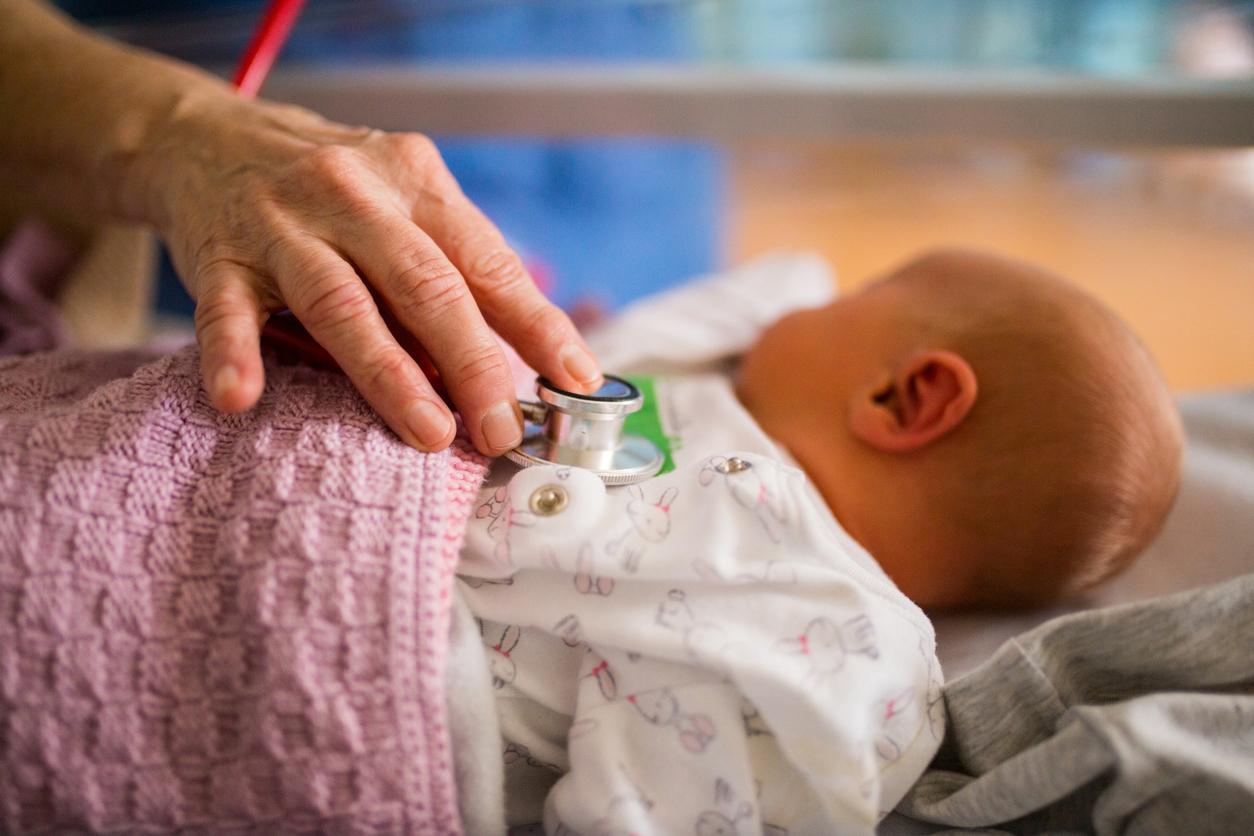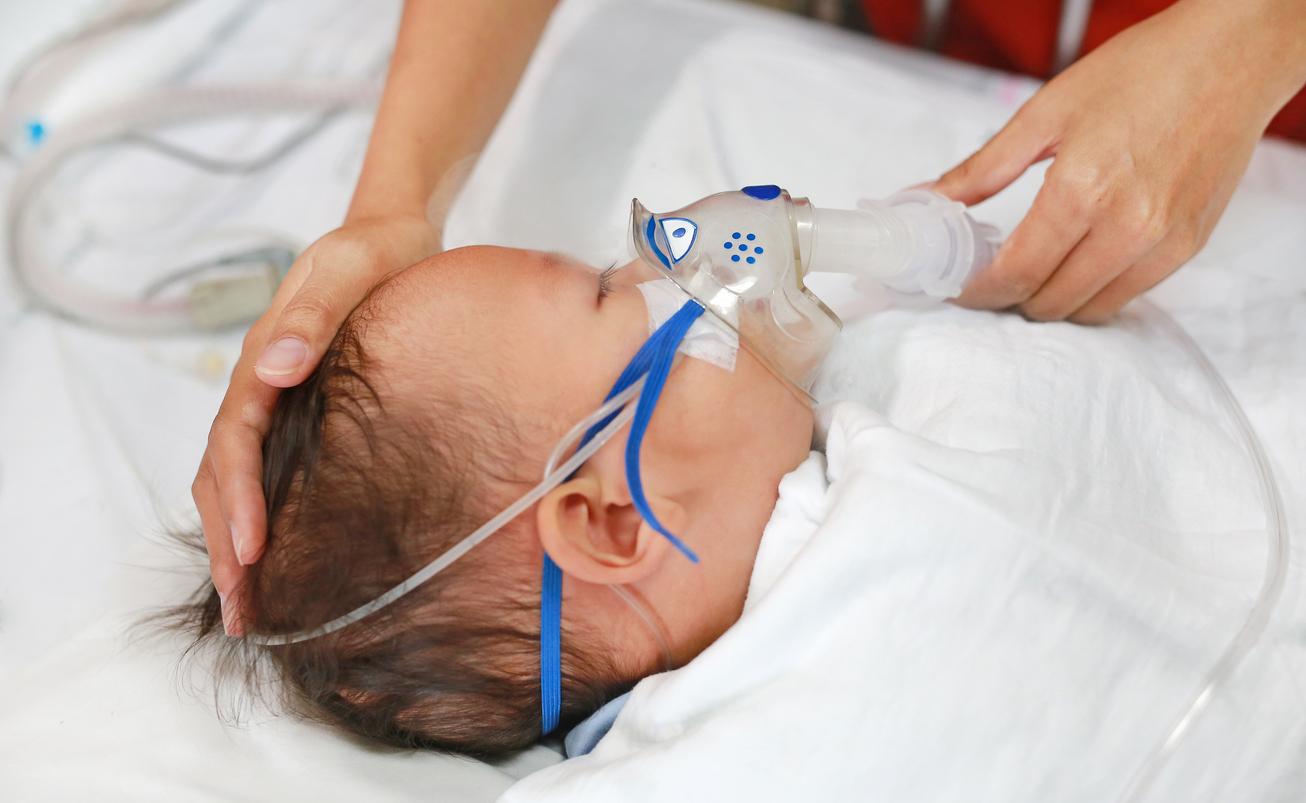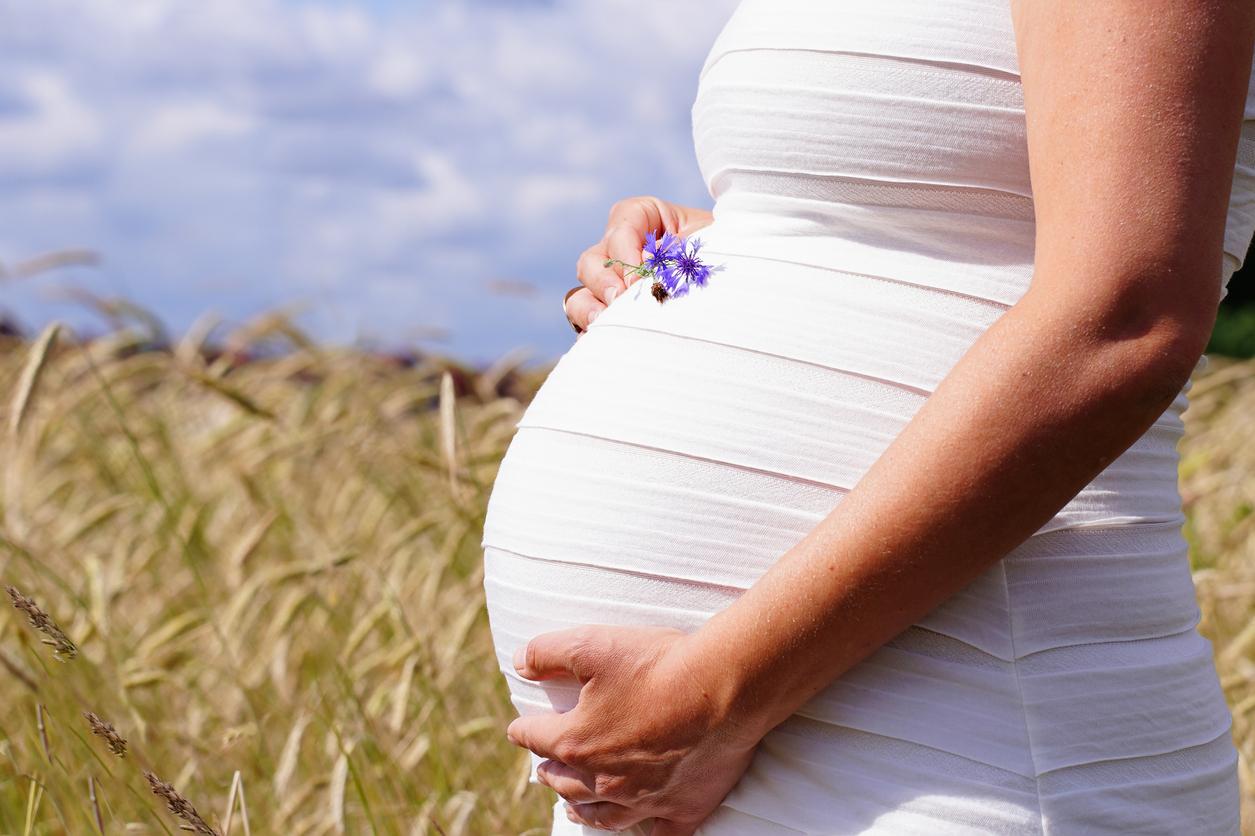According to a study led by researchers at Mass General Brigham, getting vaccinated against respiratory syncytial virus (RSV), which causes bronchiolitis in infants, early in the recommended window provides better protection for the baby.

- It is recommended that pregnant women get vaccinated against respiratory syncytial virus between the 32nd and 36th weeks of pregnancy so that their baby is protected against bronchiolitis.
- A study shows that antibody transfer and protection are most optimal if the injection is given at the 32nd week of pregnancy.
- Researchers therefore recommend early vaccination to future mothers.
To protect newborns against bronchiolitis up to six months, expectant mothers are recommended to receive the Abrysvo vaccine in the 8th month of pregnancy, more precisely between the 32e and 36e weeks of amenorrhea. Researchers at Mass General Brigham wanted to determine what was the most optimal time among this period.
Their work, published in theAmerican Journal of Obstetrics & Gynecologysuggest that vaccination closer to 32 weeks may provide the best protection for babies against RSV.
Maternal RSV vaccination: better placental transfer at 32 weeks of pregnancy
As part of their research, the team collected postpartum umbilical cords from 124 women who received the RSV vaccine over the past 32 years.e at 36e weeks of pregnancy. They were also able to take blood samples from 29 infants of these mothers when they were 2 months old. The scientists measured the level of anti-RSV antibodies in all of these samples.
They found that maternal RSV vaccination at least 5 weeks before delivery (i.e. 32 weeks) resulted in the most effective transfer of maternal antibodies across the placenta to the newborn.
At the same time, the researchers also compared the levels of anti-RSV antibodies in the maternal blood and umbilical cord of mothers who had the injection and those who were not vaccinated. “Maternal RSV vaccination resulted in significantly higher and longer-lasting maternal and umbilical cord anti-RSV antibody levels”assure the authors of the study in their press release.

Abrysvo vaccine: as early as possible to better fight bronchiolitis
“This work provides much-needed data to guide doctors in their advice on when to administer the RSV vaccine during pregnancy.”explains lead author Dr Andrea Edlow. “Our results suggest that vaccination earlier within the approved time frame allows for the most effective placental transfer of antibodies to the newborn. They may also have implications for the timing of the RSV monoclonal antibody Nirsevimab (Beyfortus ®, Editor’s note), should be administered to newborns. Similar research should be carried out for other vaccines administered during pregnancy.
However, to evaluate even more precisely the protection provided to babies by the Abrysvo vaccine, the researchers add that additional work would be necessary. They propose, for example, studying the minimum quantity of antibody transfer necessary to adequately protect the young or determining whether breast milk from mothers vaccinated against RSV confers additional protection.

















